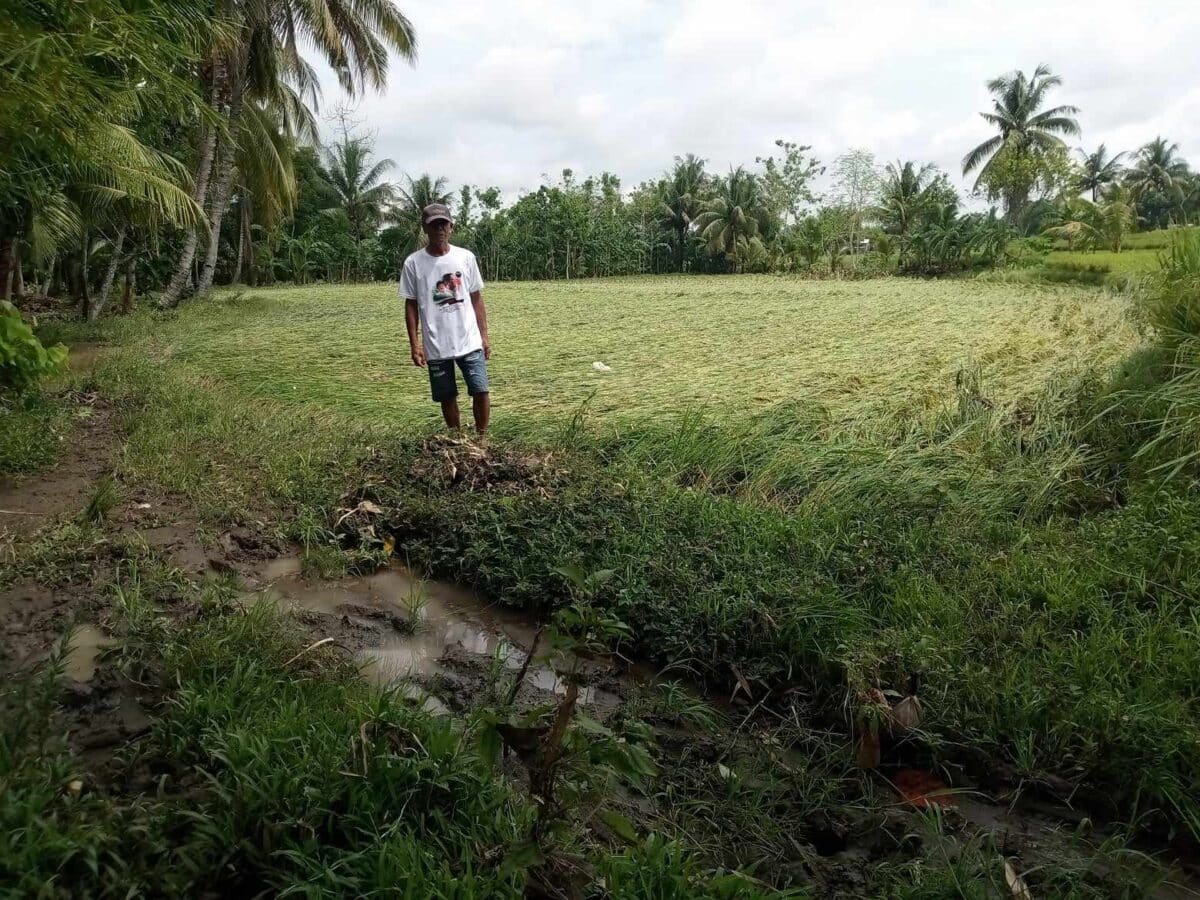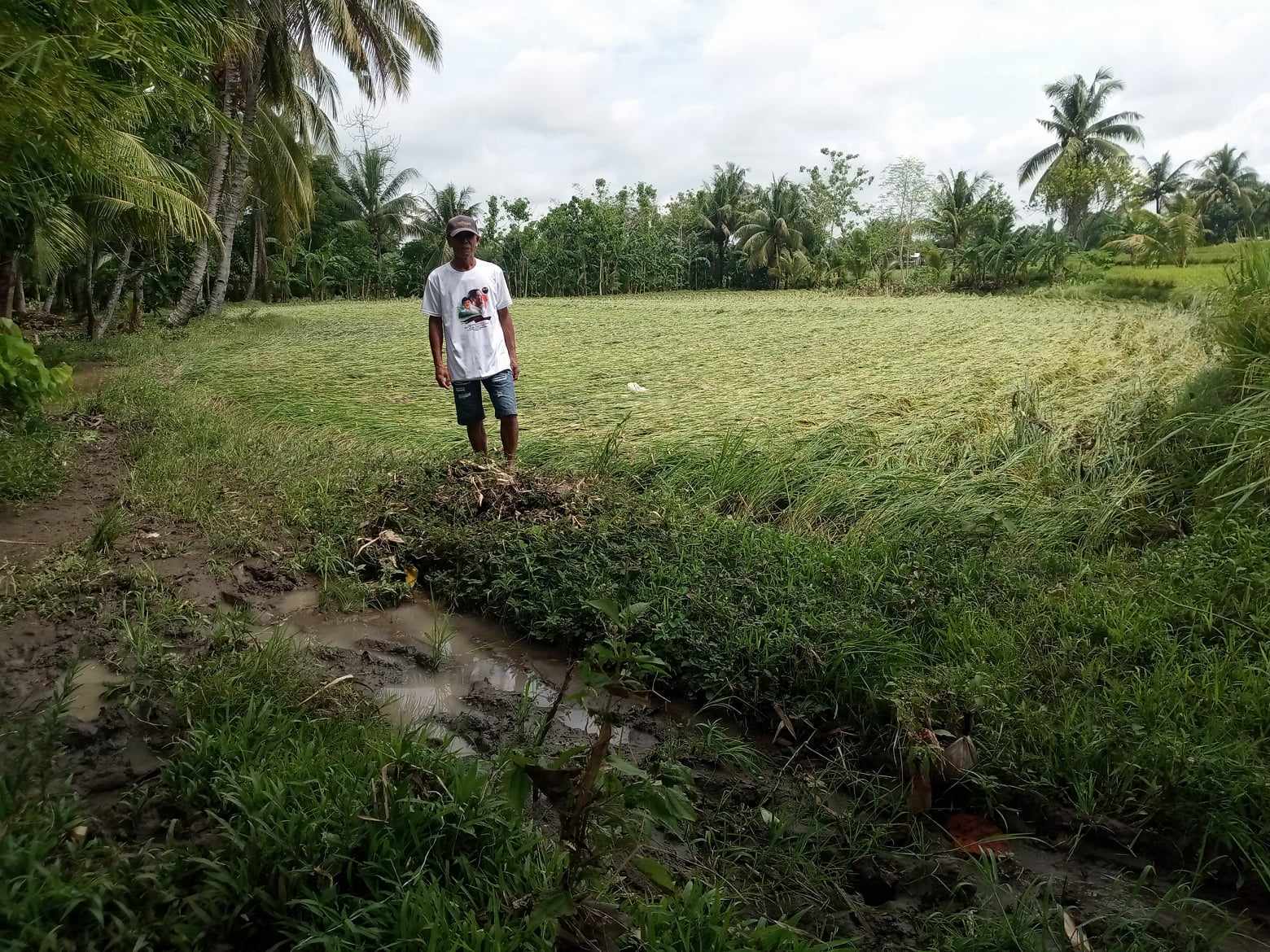
AFTERMATH A rice field is flattened after flash floods hit Tulunan, Cotabato. — WILLIAMOR MAGBANUA
MANILA, Philippines — President Ferdinand Marcos Jr. on Friday unveiled the government’s low-interest credit line that rice farmers can use to buy seeds, fertilizers, pesticides, and other farm inputs.
On his 67th birthday, the President launched in Nueva Ecija the Department of Agriculture’s (DA) “Agri-Puhunan at Pantawid Program (APP)” and oversaw the distribution of 9,832 certificates of condonation with the release of mortgage (Cocrom) covering P277 million in debts of land reform beneficiaries.
In his speech in Guimba, Nueva Ecija, during the launch of the low-interest credit facility, the President said farmers should be recognized and aided as they carry out their role in ensuring food security for the country.
“I am aware that despite the government’s programs, many of you are still struggling and are forced to take on loans with high interest rates just to buy seeds, fertilizers and pesticides,” he said.
He led the distribution of Interventions Monitoring Cards to select rice farmers, which can be used to access low interest loans to purchase farm inputs and pay for services from accredited merchants.
Article continues after this advertisement
In a later visit to Palayan City, Mr. Marcos assured farmers that the government will continue promoting the welfare, rights and improvement of the agriculture sector.
Article continues after this advertisement
“My only request is that you continue making your land productive and that you join in the efforts to improve your communities. Let us work together in improving our country. This way, we can all reach our dreams,” the President said.
P3-B seed fund
The APP credit line has an initial funding of P3 billion from the DA and the Development Bank of the Philippines. The DA also signed deals with Planters Products Inc. and the DBP for the implementation of the APP.
The APP will offer a combination of low-interest loans and a monthly subsistence allowance for rice farmers.
For the dry cropping season, the APP will offer credit lines to farmers and cooperatives behind 50,000 hectares of rice in Luzon. It targets to reach rice farmers tilling 1.2 million hectares nationwide.
A rice farmer tilling one hectare of farmland will receive P58,000. This includes a P8,000 monthly subsistence allowance to be given for four months, and a P14,500 government subsidy per hectare.
In a statement, Agriculture Secretary Francisco Tiu Laurel said the APP program is part of the government’s measures to “make farming more bankable, attract more and bigger investments, nurture a new generation of farmers by uplifting their living conditions and ensure national food security and sustainability in the Philippines.”
After the launch of the APP, Mr. Marcos then visited Palayan City where he led the distribution of 9,832 Cocroms to over 6,000 land reform beneficiaries.
The certificates covered P277 million in debts of agrarian reform beneficiaries farming 10,450 hectares of land in the province.
‘Mere scrap of paper’
The loan condonation is mandated by law under Republic Act No. 11953, or the New Agrarian Emancipation Act, which Mr. Marcos signed last year.
The distribution of Cocroms aims to “erase all unpaid principal amortizations, interests, and surcharges on agricultural lands awarded under the government’s agrarian reform program,” according to the Department of Agrarian Reform (DAR).
The DAR also distributed P41 million in agri-credit checks to 480 land reform beneficiaries representing 12 agrarian reform organizations.
But the Kilusang Magbubukid ng Pilipinas (KMP) dismissed the government’s debt condonation program as a “mere scrap of paper.”
The KMP said, in a statement, that “Cocroms are not even land titles, and even farmers in possession of land titles can be ejected from the land.”
“As long as land monopoly remain and haciendas exist, there will be no genuine emancipation of farmers and ARBs (agrarian reform beneficiaries). Genuine land reform will persist as a just and democratic demand of Filipino farmers,” said Danilo Ramos, chair of KMP.

